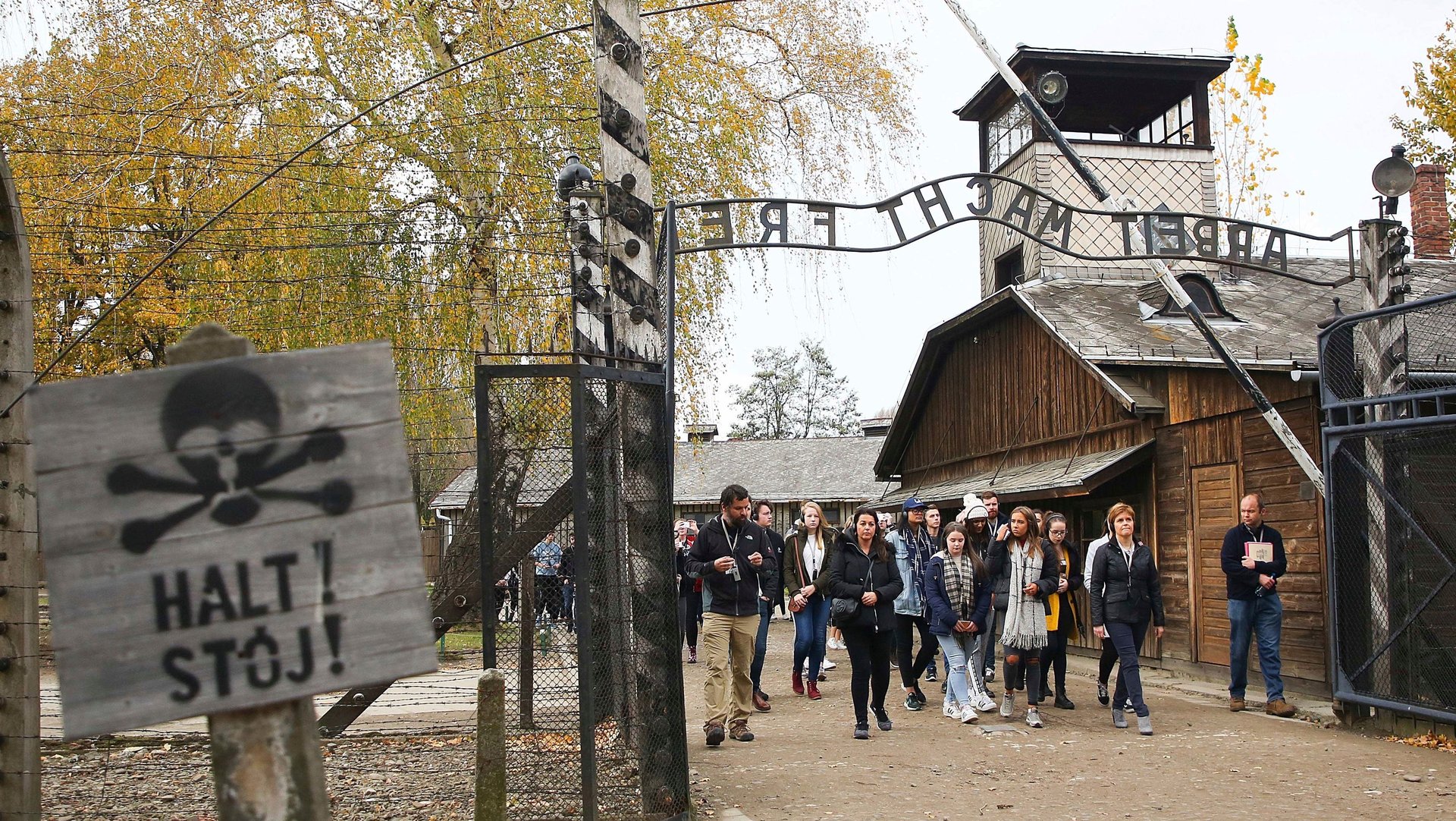The Auschwitz Museum hits back at Lindsey Graham’s Holocaust mansplaining
Earlier this week, representative-elect Alexandria Ocasio-Cortez tweeted in support of Central American asylum seekers at the US-Mexico border. She referenced previous global refugee crises, including the flight of Jewish families from Germany during World War II—a comparison that Sen. Lindsey Graham disputed.


Earlier this week, representative-elect Alexandria Ocasio-Cortez tweeted in support of Central American asylum seekers at the US-Mexico border. She referenced previous global refugee crises, including the flight of Jewish families from Germany during World War II—a comparison that Sen. Lindsey Graham disputed.
“I recommend she take a tour of the Holocaust Museum in DC,” Graham tweeted in response to Ocasio-Cortez. “Might help her better understand the differences between the Holocaust and the caravan in Tijuana.” He did not specify what those differences were.
Ocasio-Cortez argued that the point of the museum was to keep the era’s lessons alive—including impact of authoritarianism and the forces that drive families to seek asylum elsewhere. Her position was soon reiterated by an organization uniquely positioned to understand the Holocaust’s horrors: the Auschwitz-Birkenau Memorial and Museum, which maintains the historical site in Poland where Nazis killed an estimated 1.1 million people between 1940 and 1945 through execution and mistreatment.
“When we look at Auschwitz we see the end of the process,” the museum replied on Twitter to Graham. “It’s important to remember that the Holocaust actually did not start from gas chambers. This hatred gradually developed from words, stereotypes & prejudice through legal exclusion, dehumanisation & escalating violence.”
This is not the first time that historians of World War II’s ugliest crimes have spoken out against the Trump administration and its supporters. Japanese-Americans who survived US internment camps vehemently criticized the administration’s policy of family separation at the border earlier this year. In October, a Holocaust historian who specializes in the origins of genocides published an essay in the New York Review of Books noting “troubling similarities” between 1930s Germany and the US today, including a growing policy of isolationism and the failure of lawmakers on the right to curtail or criticize their side’s worst impulses.
To report the Auschwitz museum’s reply to Graham merely as a “burn” or a “clap back” downplays the deadly seriousness of the fact that those best positioned to understand the origins of the twentieth century’s darkest times now feel compelled to speak out against the current US administration.